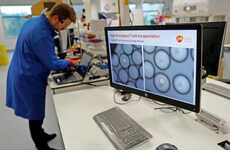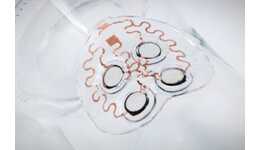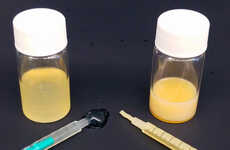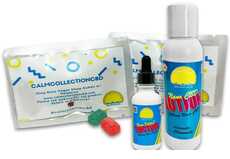
Nanoparticle Drug Delivery is Allowing Doctors to Outsmart Cancer
Alyson Wyers — January 31, 2017 — Tech
References: health.good.is
Using new nanoparticle drug delivery and tiny, high-tech tools, doctors have been able to better treat cancer. Nanoscale-sized particles full of different drug options can be sent into the patient's tumor in order to test potential choices while causing minimal harm. This is instead of having to pick one drug and potentially weakening the body, and wasting time if it the drug is ineffective.
Invented by Avi Schroeder and his team from the Technion-Israel Institute of Technology, the nanoparticle drug delivery system is able to test five or 10 drugs at the same time with little to no consequence. Essentially building minuscule drug trials, this approach helps to narrow down the best course of action without wasting too much time.
Invented by Avi Schroeder and his team from the Technion-Israel Institute of Technology, the nanoparticle drug delivery system is able to test five or 10 drugs at the same time with little to no consequence. Essentially building minuscule drug trials, this approach helps to narrow down the best course of action without wasting too much time.
Trend Themes
1. Nanoparticle Drug Delivery - Using nanoparticles to deliver multiple drugs to the tumor at the same time for better cancer treatment.
2. Minimally Invasive Cancer Treatment - Using tiny high-tech tools for cancer treatment that cause minimal harm to the patient's body.
3. High-throughput Drug Screening - Screening multiple drugs at the same time with minimal effects to help narrow the best course of action for the cancer patient.
Industry Implications
1. Pharmaceuticals - Opportunities for innovation in developing nanoparticle-based drug delivery systems that can allow for more efficient drug screening for cancer treatment.
2. Medical Devices - Opportunities for innovation in creating tiny high-tech tools and devices that can deliver nanoparticles to the tumor with minimal harm.
3. Healthcare Technology - Potential to create software and AI-powered systems to analyze enormous amounts of data produced from high-throughput drug screening to optimize cancer treatment plans.
1.1
Score
Popularity
Activity
Freshness























